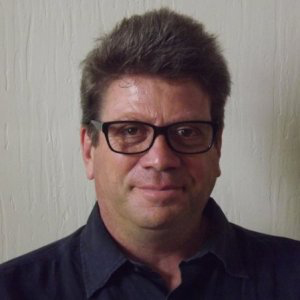 |
Jason Baehr is a Professor of Philosophy at Loyola Marymount University in Los Angeles. Baehr works at the intersection of virtue theory and epistemology, especially “virtue epistemology,” which is an approach to the philosophical study of knowledge that focuses on intellectual virtues like curiosity, open-mindedness, intellectual humility, intellectual courage, and intellectual tenacity. Baehr’s monograph on virtue epistemology, The Inquiring Mind: On Intellectual Virtues and Virtue Epistemology, was published by Oxford University Press in 2011. His project, “Flannery O’Connor and Religious Knowledge,” extrapolates a distinctive religious epistemology from several of Flannery O’Connor’s stories and situates it vis-à-vis the theoretical landscape in contemporary religious epistemology. He intends to show how this epistemological model challenges epistemic egalitarianism – and does so with considerable plausibility. He will also argue that, for O’Connor, something like moral humility (as distinct from intellectual or epistemic humility) is an intellectual or epistemic virtue.
|
||
 |
Paul Harris is a Professor of English whose scholarship and teaching reflect a deeply curious spirit, and he has relished the academic and professional freedom to pursue a rich range of intellectual interests. He has published essays in literature and science, chaos/complexity theory, literary theory, neuroscience, architecture, constraint-based writing, Bergsonian philosophy, and the interdisciplinary study of time. He has published on canonical American authors (Poe, Melville, Faulkner), and 20th century European writers (Beckett, Perec, Calvino), and has become a recognized specialist on Simon Rodia’s Watts Towers of Los Angeles. His recent publications and teaching focus on Big History and his current manuscript project uses Gilles Deleuze’s philosophy to theorize an “itinerant spirituality.”
Dr. Harris’ project, titled “The Composition of Place-Time,” comprises a scholarly essay that integrates contemplative practice, contemporary ecophilosophy, and creative artistry as it explores and gives a new iteration to the notion of composition of place. Changing place to “Place-Time” implies a dynamic relation to space, a temporal or historical understanding of a place. The essay will proceed by unpacking four ways of understanding the ‘composition of place-time’: 1) composition as contemplative practice in the Ignatian Spiritual Exercises, with an additional temporal dimension-the place is contemplated in terms of how it came to be, and what it might become; 2) composition of placetime as an active and formative interaction with a specific environment-composition as gardening, caring for a place; 3) composition of place-time as a material theory of how place and time compose a dynamic whole; ‘place-time’ is coined as an embodied, earth-centered version of the abstract geometry of general relativity space-time; 4) composition of place-time as the process of giving aesthetic expression to one’s contemplative, active, and cognitive engagement with a specific environment-just as contemplative “composition of place” in the Spiritual Exercises is followed by journal reflection on one’s experience, here contemplative composition is followed by written composition (or other forms of aesthetic expression). |
||
About the ACTI Faculty Fellows Program
ACTI is committed to dialogue and collaboration amongst the disciplines throughout LMU. This interdisciplinary focus allows scholars from across all of the university’s colleges and schools to participate in this fellowship opportunity to complete or to concentrate effort at a critical phase of a substantial research/creative project that is consistent with the mission of the Academy for Catholic Thought and Imagination. Each ACTI Fellow will receive a course release from one 3 or 4-unit course. Such projects may take diverse forms: developing, critically engaging, expanding, adding to, questioning, or explaining aspects of the Catholic intellectual tradition or its various concerns; entering into dialogue with Catholic thought or imagination from the perspective of a different faith tradition or no faith tradition; using the resources of the Catholic tradition to understand and respond to pressing contemporary issues; developing a creative work in dialogue with the imaginative and intellectual framework of the Catholic tradition, and so forth. For more information and to apply, visit the ACTI website.